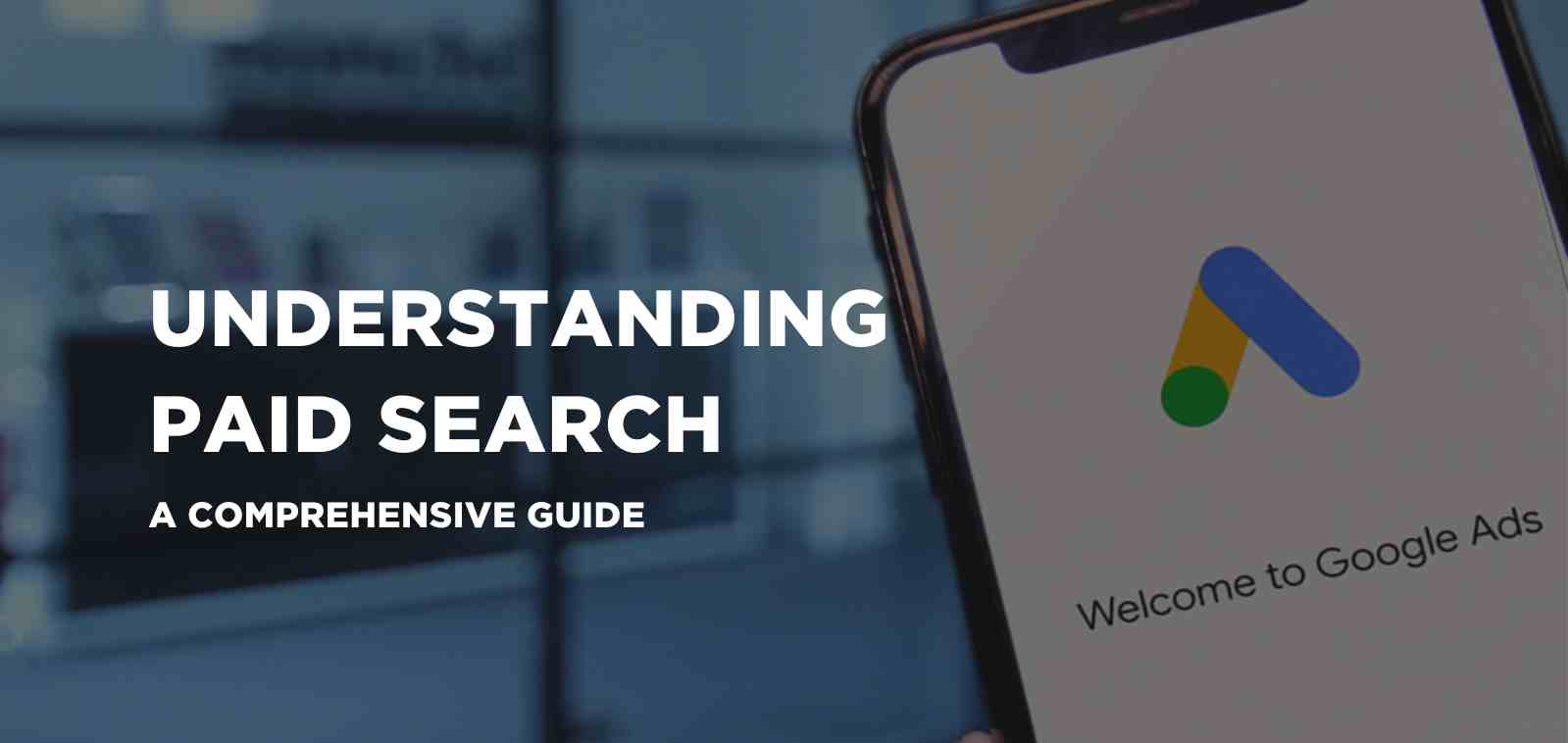3 min read
Bon Voyage to the Ordinary: Top Ecommerce Trends for Travel Brands in 2024
The travel industry is taking flight in the digital realm. As wanderlust reigns supreme, travel brands need to equip themselves with...
5 min read
 Cristi Macfarlane
:
May 15, 2024 6:49:25 AM
Cristi Macfarlane
:
May 15, 2024 6:49:25 AM

Unlock the power of paid search and drive targeted traffic to your website with this comprehensive guide.
Paid search, also known as pay-per-click (PPC) advertising, is a form of online advertising where advertisers bid on keywords to display their ads on search engine results pages (SERPs). When a user searches for a specific keyword, the search engine displays relevant ads at the top or bottom of the page. These ads are labeled as 'sponsored' or 'ad' to distinguish them from organic search results.
To participate in paid search, advertisers need to set up an account with a search engine advertising platform, such as Google Ads or Bing Ads. They then create ad campaigns and select keywords that are relevant to their products or services. Advertisers bid on these keywords, and the search engine uses a combination of the bid amount and the ad's quality score to determine which ads appear for a given search query.
Paid search offers several benefits for advertisers. It allows businesses to target specific keywords and reach a highly relevant audience. Advertisers can set a budget and only pay when someone clicks on their ad, making it a cost-effective advertising method. Additionally, paid search provides valuable data and insights that can be used to optimise campaigns and improve return on investment (ROI).
Paid search works on an auction-based system. The ad that an advertiser creates and its subsequent keywords make up the advertiser pool for the auction and when a user enters a query, the search engine runs through the advertiser pool to find any keywords that match, or are relevant too the query.
But with the huge number of advertisers using paid search, not all of them can win a spot on the SERPs. So how does Google determine which ads will win the auction?
There's alot that goes into winning the auction, and quality score, ad rank and the maximum CPC bid are key factors. Quality score pertains to the ad itself, and it made up of the following: Ad relevance, expected CTR and landing page experience. Effectively these components tell the search engine how relevant an ad is to the search query, how likely the ad will get clicked based on historic performance and lastly how relevant your landing page is to the ad copy.
Ad rank scores are based on numerous factors including your bid amount, ad quality, landing page quality, ad rank thresholds, auction competitiveness and the context of a users search. These values help determine whether your ads are eligible to show and where on the search results page they are shown, relative to competitors.
Using paid search offers several benefits for businesses. Firstly, it provides immediate visibility on search engine results pages, allowing advertisers to reach their target audience quickly. Unlike organic search, which can take time to rank, paid search ads appear as soon as the campaign is live.
Paid search also allows for precise targeting. Advertisers can choose specific keywords, demographics, locations, and devices to ensure their ads are shown to the right audience. Unlike other channels, users on Google or Microsoft are already searching for a solution, and getting your brand in front of them at the right time will increase the chances of converting.
Another benefit of paid search is the ability to track and measure campaign performance. Advertisers have access to detailed analytics and can see the number of impressions, clicks, conversions, and other key metrics. With the sheer amount of data you get through paid search, you can clearly see which campaigns are worth investing more into, those which need optimising and those which perhaps didn't work out.
Lastly, paid search offers flexibility and control. Advertisers can easily adjust their budget, bids, and targeting settings based on campaign performance and business goals. This allows for efficient allocation of resources and the ability to scale campaigns as needed.
To create a successful paid search campaign, it's important to start with thorough keyword research. Identify the keywords that are relevant to your business and have a good search volume. Remember to think in the mind of your target audience and the language that they might be using to search for the product or service you offer.
Once you have a list of keywords, create compelling ad copy that includes the targeted keywords. The ad should be concise, engaging, and clearly communicate the features and benefits of what you offer. Your headlines are ultimately what will draw a users attention to your ad, so don't rush this part of campaign creation.
To take up further real estate on the search results page and increase click through rate (CTR), you can add relevant ad assets. Sitelinks allow you to add additional links underneath you're ad which should be directed to pages that are also relevant to the users search. Callouts offer 25 characters to call out any highlights about your offer e.g. free delivery, 24h support. There are numerous assets available to add and making the most of those that are relevant to your brand is considered best practice.
Next, optimise your landing pages to ensure a seamless user experience. The landing page should be relevant to the ad and provide valuable content or offers. It should have a clear call-to-action (CTA) that encourages users to take the desired action, whether it's making a purchase, filling out a form, or contacting your business. Follow conversion rate optimisation best practices to ensure your page is set up for the highest chance of success.
When it comes to bid strategies there's several to choose from including Maximise Clicks, Maximise Conversions (with target CPA), Maximise Conversion Value (with target ROAS), Maximise Impression Share and Manual CPC. Each bid strategy is suited to different campaigns and advertising goals, so make sure you choose what is most relevant to you. You can change your bid strategy as your campaign matures.
Regularly monitor and analyse your campaign performance. Pay attention to key metrics like click-through rate (CTR), conversion rate, and cost per conversion. Identify areas for improvement and make data-driven decisions to optimise your ads, keywords, and targeting settings. A/B testing can also be valuable for testing different ad variations and landing page designs.
Lastly, don't forget to regularly review and refine your campaign strategy. Stay updated with industry trends, competitor activities, and changes in search engine algorithms. Continuously adapt your campaign to ensure it remains relevant and effective.
Optimising and analysing your paid search campaign is crucial for maximising its effectiveness. Here are some tips to help you optimise and analyse your campaign:
Regularly review and adjust your keyword list. Identify high-performing keywords and add them as exact match or phrase match keywords. Review key efficiency metrics that are aligned with your business goals to judge the success of your keywords.
Perform regular search query reports (SQRs) to assess the quality of traffic you are bringing through. If you have an underperforming keyword, checking the search term report can give you more insight into why it might not be working. Through SQRs you can build comprehensive negative keyword lists which prevent your ads from being shown on irrelevant searches and ultimately improve the quality of traffic.
Test different ad variations. Create multiple ad copies with different headlines, descriptions, and calls-to-action. Monitor their performance and identify the winning variations that generate the highest click-through rates and conversions. With Responsive Search Ads, you can review which headlines and descriptions generate the most impressions, which is a useful starting point when looking into what messaging resonates best with users.
Experiment with match types. There was a time in Paid Search when broad match keywords were a complete no-go, but the improvements to this match type in recent years now makes it a viable strategic option. Whilst you will still want your exact and phrase match keywords, be open to experimentation to find what works for your account.
Improve your landing page experience. Ensure your landing pages are mobile-friendly, load quickly, and provide relevant and valuable content. A seamless user experience increases the chances of conversions and improves your Quality Score.
Analyse your campaign data. Dive deep into your analytics to understand trends, patterns, and insights. Look for opportunities to optimise your bidding strategy, targeting settings, and ad scheduling.
By continuously optimising and analysing your paid search campaign, you can drive better results, increase your ROI, and achieve your advertising goals.
For further information about your Paid Media strategy, or help with your campaigns or an audit, get in touch now.

3 min read
The travel industry is taking flight in the digital realm. As wanderlust reigns supreme, travel brands need to equip themselves with...

2 min read
The fashion scene is undergoing a digital makeover. With consumer habits constantly shifting, fashion brands need to adapt and embrace innovative...

2 min read
The home and garden landscape is blooming in digital. As consumer preferences evolve, home and garden businesses need to cultivate innovative...